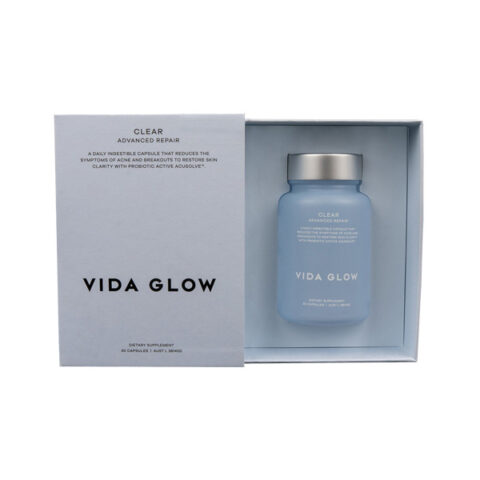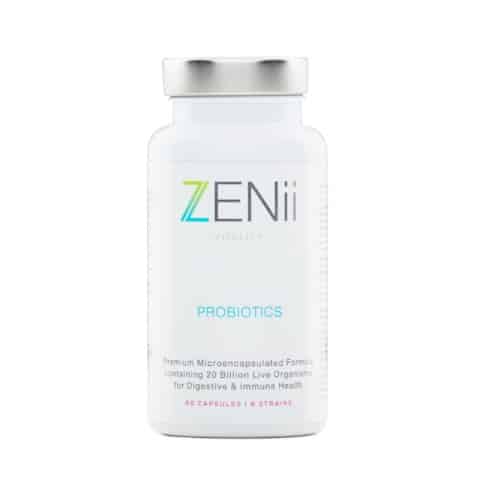Our body is inhabited by thousands of microorganisms. They interact to digest food, normalize physical processes, etc. Probiotics are preparations that contain beneficial bacteria in dried or dissolved form. Most often, these are microorganisms from the genus Lactobacillus and Bifidobacterium, which normally dominate the human digestive tract.
Acne is a common disease that affects the skin and causes scars, breakouts, blackheads, etc. Can probiotics cause acne and what are their benefits? We`re going to answer these questions below.
Do Probiotics Help with Acne?
First of all, note that probiotics and acne are interrelated. The main target of probiotics is to calm down both external and internal inflammation. Thus, probiotics for acne come as a highly effective treatment. Moreover, probiotics restore and reinforce the skin`s natural protective barrier, preventing pores and wounded areas from further pollution. As a result, the likelihood of new inflammation reduces.
Thus, answering the question "Can probiotics help with acne", the effectiveness and benefit of these ingredients are obvious and clinically proven. Dermatologists frequently include products with probiotics in acne therapy.
Benefits of Probiotics for Acne
Do you still doubt the benefit of probiotics for acne skin? Here are the main arguments to the question "Are probiotics good for acne?":
- Calm down inflammation, resulting in the elimination of new breakouts.
- Restore hormonal balance, stimulating inner processes.
- Reduce the amount of propionimbacterium produced by the human body.
- Normalize the smooth and proper functioning of all body systems.
- Soothe and smoothen the skin surface.
- Protect from environmental aggressors, pollution, and skin damage.
How Long Does It Take To See Acne Results?
Do you want to know how fast probiotics help acne? Actually, it is impossible to give one definite answer to the question since it all depends on the form, severity, and individual body features. Some patients see a visible effect within a few days, while for others, it takes up to several weeks or months to cope with the disease.
Yet, an average period set after multiple studies is 4-6 weeks. Scientists usually expect to see visible improvements within at least one month of regular therapy using products with probiotics for clear skin.
How To Get Rid Of Acne Scars?
Note that it is possible to get rid of acne scars and enjoy a beautiful even skin complexion with regular probiotic skincare for acne. More info on this topic is found in the next articles:
F.A.Q
DOES VITAMIN C HELP ACNE SCARS?
Yes, the positive effect of vitamin C on acne scars is due to its healing properties. Vitamin C boosts skin wound healing and collagen production, which helps guarantee a stable effect like probiotics for skin acne.
HOW LONG DOES AN ACNE SKIN BREAKOUT LAST?
In most cases, the effect of taking the best probiotics for acne is visible in 4-6 weeks after starting a new therapy. If no change is observed, visit a dermatologist to change the treatment strategy.
What kills acne bacteria fast?
Some ingredients demonstrate the highest effectiveness in the fight against acne bacteria. These include tea tree oil, triclosan, benzoyl peroxide, minocycline, retin-A, Manuka honey, Chrysanthemum, Tetracycline, Clindamycin, and Isotretinoin. Together with gut health and hormonal acne probiotics, they cause a high effect and heal quickly.
Can acne be 100% cured?
Yes, it is possible to heal acne but be ready that this process will take several months, depending on its severity. Yet, if you have patience, you`ll scream "Probiotics cleared my skin" one day.
How do I know if my acne is bacterial or hormonal?
When picking suitable probiotics for acne in the UK, it is important to know what type of acne you have. Hormonal acne is caused by the excess production of sebum resulting in pore clogging. Bacterial acne is related to the growth of acne bacteria on the skin surface; they cause all problems. Note that both types of acne can co-exist. To find out what type of acne you have, you should visit a dermatologist and pass an examination.
Conclusion
Acne is a popular skin problem that affects thousands of people around the world. Yet, with timely and proper treatment, it is possible to fight it and enjoy a smooth and healthy complexion. Probiotics for face acne are widely used as part of complex therapy. They help reinforce the capability of the body to fight acne bacteria, normalize the work of all systems, and nourish cells with vital components. Modern manufacturers offer a wide assortment of probiotic supplements for acne problems so that every customer can pick a suitable one.




